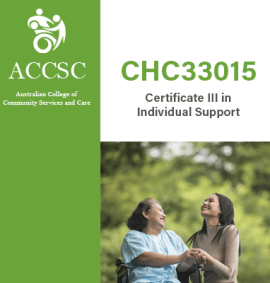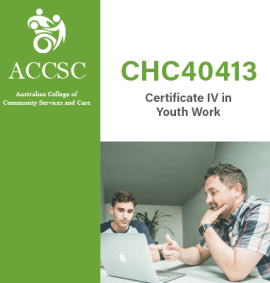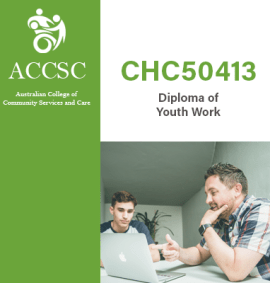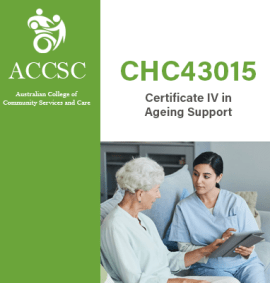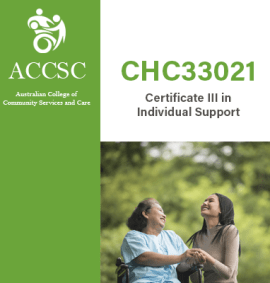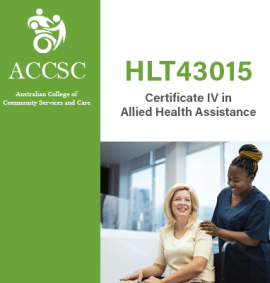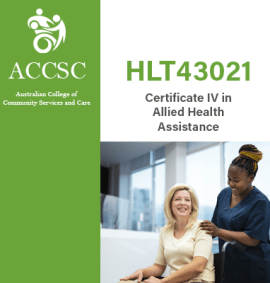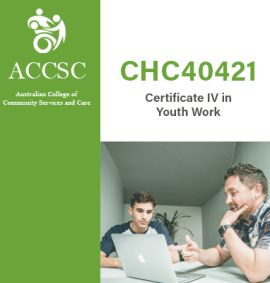
What is Allied Health?
If you are a person looking for a long and rewarding career with fantastic growth prospects, that gives you the chance to help people every day, then working as an allied health assistant opens the door to many different opportunities for working in the health industry. You will work as a part of a multi-disciplinary health team to provide tailored support to people who may be suffering from a variety of issues. As an allied health assistant, you would be working under the direction and guidance of an allied health professional such as a physiotherapist, podiatrist, or a dietitian. There is nothing stopping you after finding the area you are most interested in, from partaking in more training and study to become fully qualified in your field.

Allied health regulation
Allied health workers are regulated by either the national body, Australian Health Practitioner Regulation Agency (AHPRA) or through self-regulation. Self-regulation is carried out by a professional association that is responsible for certifying qualifications, setting, and maintaining standards and overseeing professional development.
• AHPRA regulated occupations include Chinese medicine practitioners, chiropractors, medical radiation practitioners, occupational therapists, optometrists, osteopaths, pharmacists, physiotherapists, podiatrists, psychologists.
• Self-regulated professions include art therapists, audiologists, dietitians, exercise physiologists, genetic counsellors, music therapists, orthoptists, orthotists/prosthetists, perfusionists, rehabilitation counsellors, social workers, sonographers, speech pathologists.
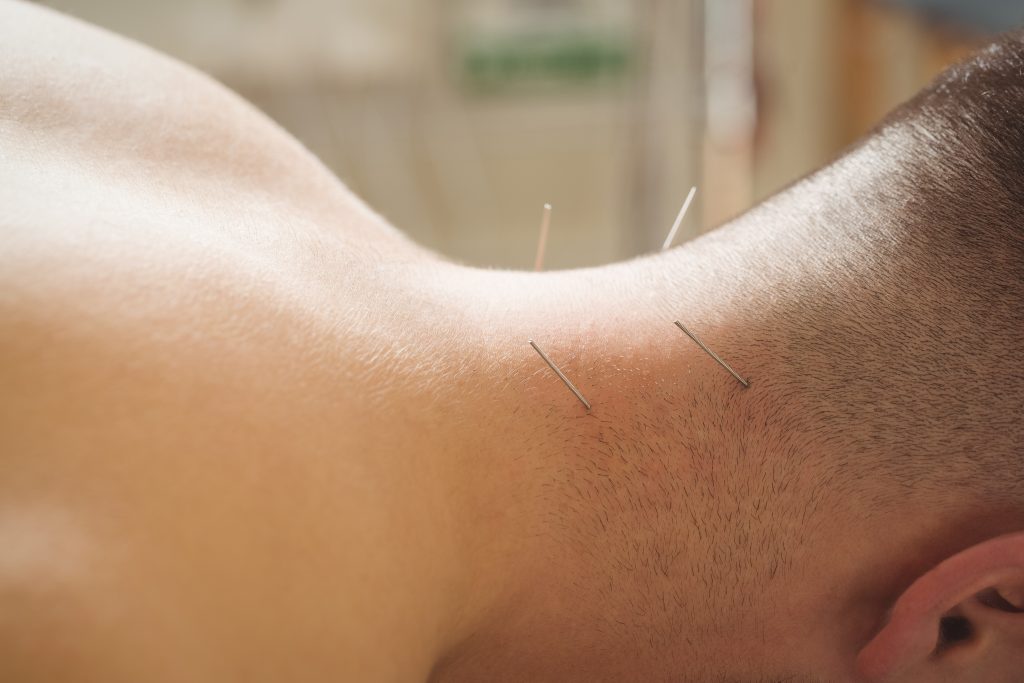
Allied Health Professions Australia (AHPA) is the recognised national voice for allied health professions in Australia. It advocates and represents over 150,000 workers in health, aged care, disability, social services, and all other services where allied health plays a part. AHPA is a collegiate body consisting of 24 national associations and a further 13 affiliate members. Members of the AHPA represent a broad spectrum of the services offered by allied health, including:
• Dietitians Australia: Dietitians Australia is an advocacy group for Australian dietitians and provides support to their 8000 members. They also work to provide awareness of nutrition in public health and campaign for healthy food for all Australians.
• Australian Physiotherapy Association: the Australian Physiotherapy Association has 30000 members and is the peak body that represents the interests of Australian physiotherapists and their patients. The vision of the APA is to ensure physiotherapy is consumers first choice for health and well-being.
• Australian Podiatry Association: the Australian Podiatry Association aims to improve foot health in the community and to continue making a positive impact on foot issues in Australia. They provide a broad range of resources for their 2,500 members such as counselling, professional support, and business support.
The National Alliance of Self-Regulating Health Professions (NASRHP) is another independent body that provides a framework for self-regulated allied health professions. Both the NASRHP and the AHPA operate independently of government and set their own conditions for membership. The main goal of each of the organisations, is to gain further recognition in society for the professions they represent and to emphasise the importance that allied health services play in the Australian healthcare system.
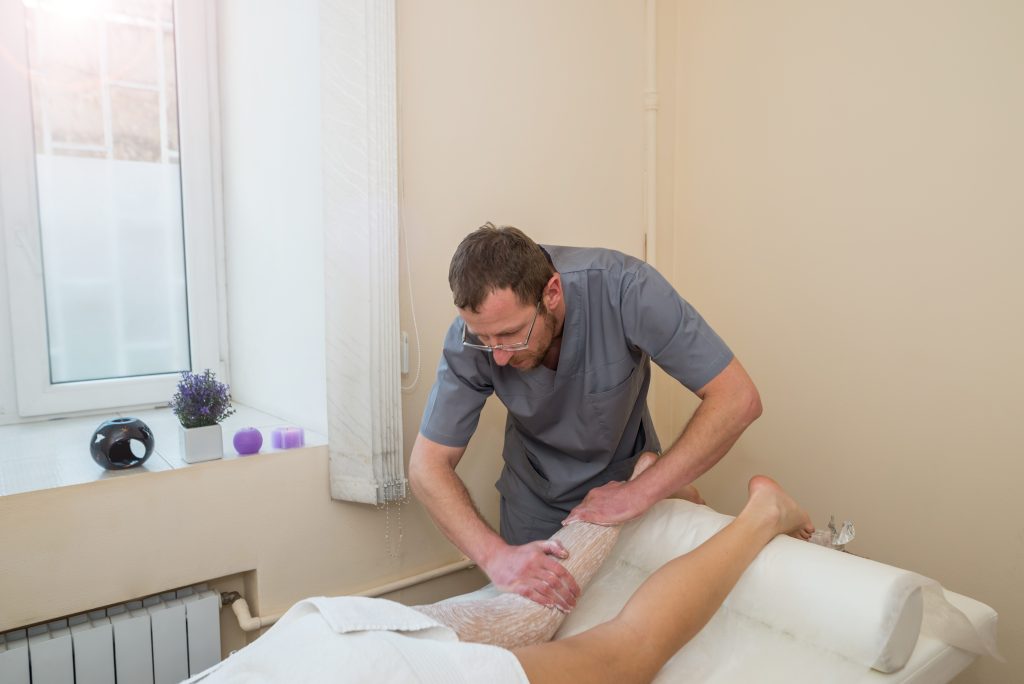
The allied health skill-set
In Australia, there are approximately 200,000 allied health professionals, making up a third of Australia’s health care workforce. Additionally, these workers carry out around 200 million health services annually. Allied health assistants work with a multitude of different professions and therefore require a broad skill set that is both tailored to a particular field such as physiotherapy but that also covers more general skills.
General skills include being a strong communicator, being adaptable, problem-solving capability, organisational skills, having confidence in working with diverse people – elderly, children, and people with a disability. Allied health assistants work in places such as hospitals, medical practices, and community health centres. The conditions which allied health helps treat encompass every part of the human anatomy, from the musculoskeletal system to mental health, and even the use of music as therapy. There is certainly a role for everyone who desires to have a career in the industry.

Employment in allied health
Opportunities for employment in the allied health industry are growing every year, with growth expected to be strong in the coming years, especially in rural areas. While allied health assistants can become qualified to work across many different specialties, some of them include:
• Nutrition assistant: Nutrition assistants work directly with dietitians and other medical professionals to help ensure the correct delivery of clients dietary requirements. Specific tasks include taking phone calls, booking appointments, maintain client records, invoicing clients, overseeing meal preparation, and determining the nutritional value of a meal. The completion of a certificate 4 in allied health is required to work in this role. The expected salary of a nutrition assistant is $60,000 per year.
• Podiatrist assistant: Some of the tasks that a podiatrists assistant carry out are infection control and prevention, scheduling appointments, ordering and organising supplies, and provide splints, braces, pads, and other forms of support for clients feet. Completing a certificate 3 or certificate 4 in allied health is a part of becoming a podiatrists assistant. You will also have to carry out some training related specifically to the field of podiatry. The average salary of a podiatrists assistant is $58,920.
• Physiotherapist assistant: as a physiotherapist assistant you will work under the guidance of a fully qualified, registered physiotherapists. Tasks include speaking with patients and their families about the impact of their condition on their mobility and lifestyle, assisting patients complete their exercises which help manage their pain, build strength, and improve their mobility. You might also carry out basic massage work or other forms of treatment, such as ultrasound treatment. To work as a physiotherapists assistant, you will need to undertake a certificate 3 or certificate 4 in allied health, specialising in physiotherapy. The average yearly pay for a physiotherapist assistant is $56,500.

In conclusion
Allied health workers help provide an essential service to all Australians by playing key roles in the prevention and management of chronic disease in Australia. By entering a career in allied health, you are setting yourself up for life in an industry that will always provide a stable job with immense satisfaction in the changes you can help make in people’s lives, as well as the opportunity for both personal and career growth.


